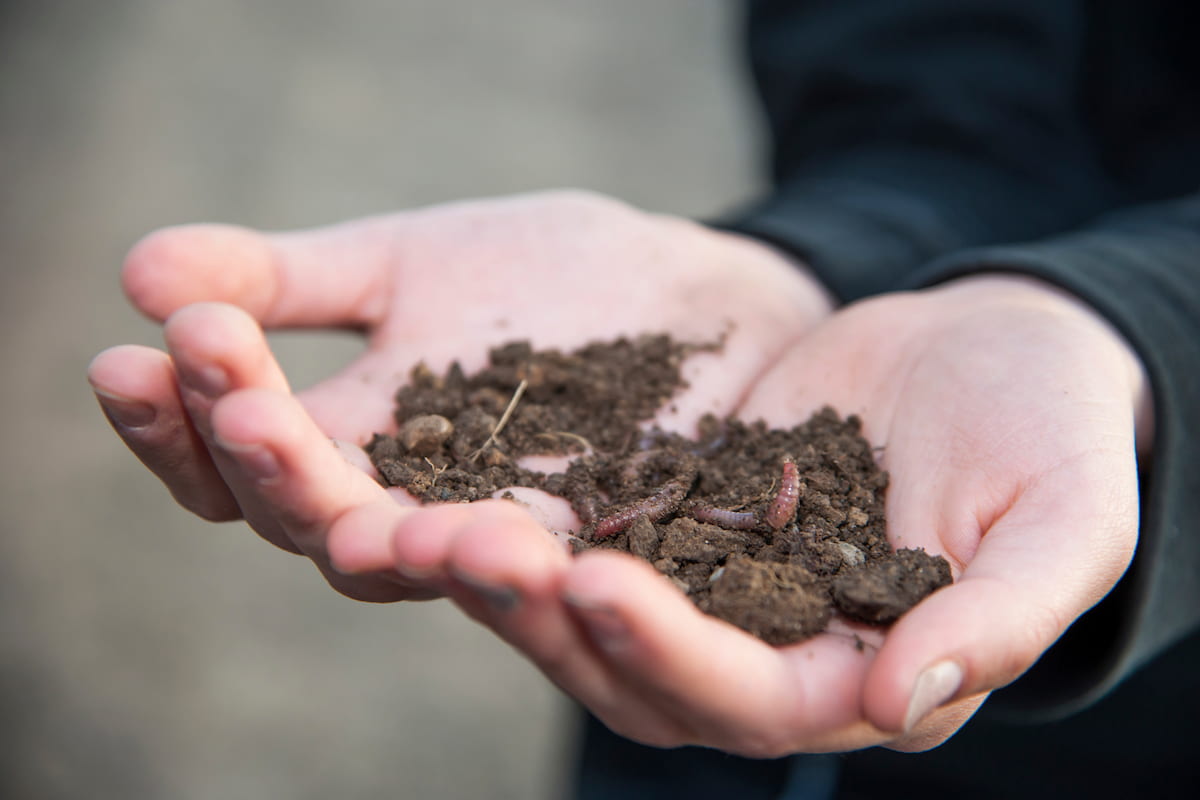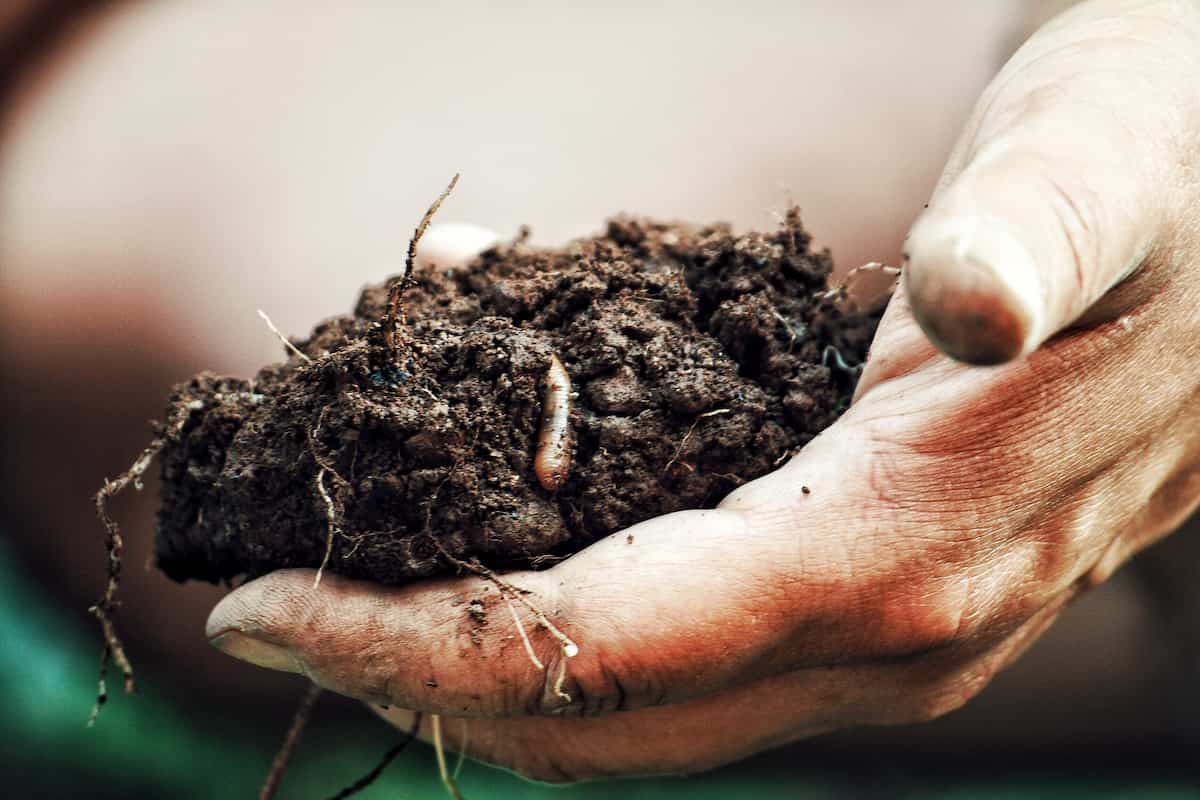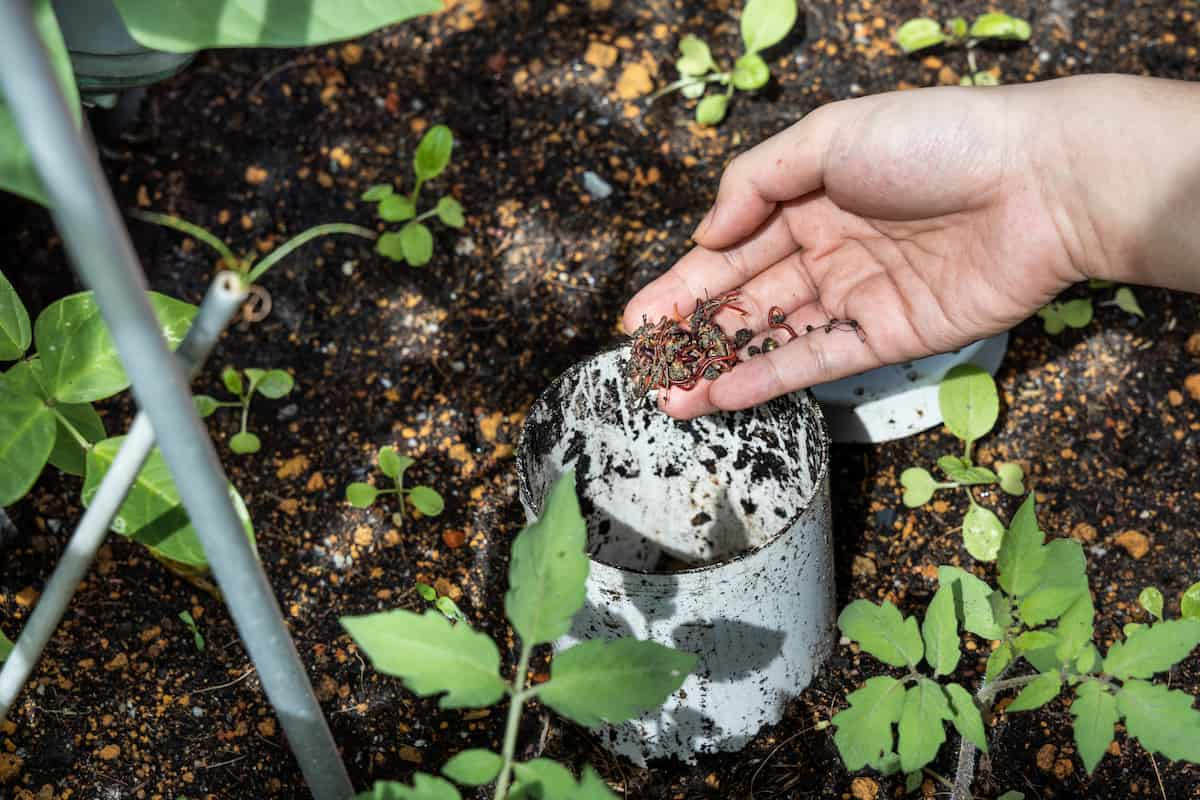Organic gardening is an environmentally friendly approach to growing plants without synthetic fertilizers, pesticides, or herbicides. One of the most effective organic gardening solutions is worm castings. Worm castings are the end product of earthworms’ breakdown of organic matter. They are nutrient-rich, natural fertilizers that can significantly improve the health of your garden. Below we learn the benefits of using worm castings in organic gardening, how to produce and use them, and how they contribute to sustainable agriculture.

Organic Gardening Solutions with Worm Castings
Benefits of Worm Castings in Organic Gardening
- Nutrient-rich composition: Worm castings are rich in essential nutrients such as nitrogen, phosphorus, potassium, calcium, and magnesium, vital for plant growth and development. They also contain trace elements like iron, zinc, copper, and manganese, which promote overall plant health.
- Improved soil structure: The addition of worm castings improves soil structure, increasing aeration and water retention capacity. This, in turn, fosters the growth of beneficial microorganisms, which help break down organic matter, making nutrients more readily available to plants.
- Pest and disease resistance: Worm castings contain enzymes and beneficial microbes that help plants resist pests and diseases. These substances create a natural barrier around the plant’s roots, protecting them from harmful pathogens and insects.
- Sustainable and environmentally friendly: Worm castings are a byproduct of a natural process that recycles organic waste, reducing the need for synthetic fertilizers and contributing to a healthier ecosystem.
Producing Worm Castings: Vermicomposting
- Choose the right worms: Red wigglers (Eisenia fetida) are the most commonly used species for vermicomposting. They reproduce quickly and efficiently to break down organic matter.
- Create a worm bin: You can use a plastic container or wooden box as a worm bin. Ensure it has a lid and ventilation holes. The bin should be 12 inches deep, as worms prefer dark, moist environments.
- Prepare bedding: Shred newspaper or cardboard and moisten it until it has the consistency of a wrung-out sponge. Fill the bottom of the bin with 4-6 inches of bedding.
- Add worms and food: Introduce the worms to their new home and provide them with a small amount of organic waste, such as fruit and vegetable scraps, coffee grounds, or eggshells. Avoid meat, dairy, and oily foods.
- Maintain the bin: Keep the bin in a cool, dark place, and maintain a consistent moisture level. Regularly add new food scraps and bedding to ensure the worms have enough to eat.
- Harvest the castings: Once most of the bedding and food have been converted into worm castings (usually within 3-4 months), you can harvest them and use them in your garden.
Using Worm Castings in Your Organic Garden
- Top dressing: Sprinkle worm castings around the base of your plants. This will slowly release nutrients as the castings break down and are absorbed by the plant’s roots.
- Soil amendment: Mix worm castings into the soil when preparing garden beds or planting new plants. This will improve soil structure, increase nutrient availability, and stimulate the growth of beneficial microorganisms.
- Potting mix: Incorporate worm castings into your potting mix for container gardening. A ratio of 1 part worm castings to 3 part potting mix is recommended for most plants.
- Seed germination: Create a 1:1 mixture of worm castings and seed-starting mix to boost seed germination and promote strong, healthy seedlings.
- Compost tea: Steep worm castings in water to create a nutrient-rich liquid, which can be applied as a foliar spray or directly to the soil. This method gives plants a quick boost of nutrients and can help improve their resistance to pests and diseases.
In case you missed it: Organic Garden Pest Control: DYI Step-By-Step Guide

Worm Castings and Sustainable Agriculture
- Reducing waste: Vermicomposting diverts organic waste from landfills, reducing methane emissions and contributing to a circular economy.
- Conserving water: Improved soil structure and water retention capacity mean less irrigation is needed, conserving water resources.
- Reducing chemical use: Worm castings provide a natural alternative to synthetic fertilizers, pesticides, and herbicides, decreasing the environmental impact of chemical runoff.
- Enhancing biodiversity: Worm castings promote the growth of beneficial microorganisms, contributing to a healthier soil ecosystem and improved plant diversity.
- Supporting local economies: Small-scale worm farming and vermicomposting operations can create jobs and support community-based agriculture initiatives.
Enhancing Plant Growth with Worm Castings
- Side-dressing: Midway through the growing season, apply worm castings as a side-dressing to provide an extra boost of nutrients to plants. Gently work the castings into the soil around the base of the plants, taking care not to disturb the roots.
- Transplanting: Add a handful of worm castings to the planting hole or container when transplanting seedlings or repotting established plants. This will help reduce transplant shock and encourage rapid root development.
- Foliar feeding: Mix worm castings with water to create a nutrient-rich liquid, then strain the liquid and use it as a foliar spray. This method allows plants to absorb nutrients directly through their leaves, providing an immediate boost to growth and overall health.
- Mulching: Use worm castings as a natural mulch around the base of plants to help conserve moisture, suppress weeds, and slowly release nutrients into the soil.
Troubleshooting Common Vermicomposting Issues
- Unpleasant odor: A well-maintained worm bin should have a mild, earthy smell. If your bin develops an unpleasant odor, it may be due to overfeeding, insufficient aeration, or excessive moisture. To remedy this, reduce the amount of food added, mix in additional bedding, and ensure proper ventilation.
- Fruit flies: Fruit flies may be attracted to exposed food scraps in the worm bin. Always bury food scraps beneath the bedding to prevent infestations and consider using a fruit fly trap nearby.
- Escaping worms: If worms try to escape the bin, it may indicate unfavorable conditions, such as poor aeration, extreme temperatures, or excessive moisture. Ensure the bin is well-ventilated, maintained at a consistent temperature (between 60-75°F / 15-24°C), and the bedding at the proper moisture level.
- Slow composting: If the decomposition process seems slow, it may be due to insufficient worm population, inadequate food supply, or poor environmental conditions. Adjust the worm-to-food ratio, provide a balanced diet, and ensure optimal temperature and moisture levels to speed up the process.
In case you missed it: Disease Management in Organic Farming: Best Practices Explained

Conclusion
Organic gardening solutions with worm castings offer an effective, sustainable, and environmentally friendly approach to cultivating healthy and productive gardens. The numerous benefits of worm castings and their ease of production and versatile application make them an essential component of any organic gardening toolkit.
- Feed Your Flock for Less: Top 10 Tips to Save on Chicken Feed
- Ultimate Guide to Ossabaw Island Hog: Breeding, Raising, Diet, and Care
- Hatching Answers: The Top 10 Reasons Your Chickens Aren’t Laying Eggs
- Eggs and Economics: Breaking Down the Cost of Raising Backyard Chickens
- Defend Your Greens: Proven Methods to Keep Iguanas Out of Your Garden
- Ultimate Guide to Cinnamon Queen Chicken: A Comprehensive Guide for Beginners
- Ultimate Guide to California Tan Chicken: Breeding, Raising, Diet, Egg-Production and Care
- Ultimate Guide to Marsh Daisy Chicken: Breeding, Raising, Diet, and Care
- 10 Types of Chicken Farming Businesses You Can Start for Profits